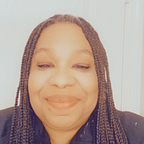4 Steps: Getting Clear On What To Write
It’s nothing fancy
If you’re a writer, you can relate to days when you can’t wait to get out of bed and start writing. Other days, it’s tough. You feel lost. You can’t figure out where a story starts and ends.
This happened today while preparing for this article. “Gosh, I have writer’s block. I have nothing to write about.” I told myself and my family.
What is writer’s block?
“The condition of being unable to think of what to write or how to proceed with writing.” Google
I know writer’s block. I experienced it for five years. Something happened in my life that totally shut me down. I had no stories. I had no ideas. I had nothing. When I sat in front of my computer to write or sat with pen and pad, nothing came.
Some people would say, since I’ve suffered from writer’s block, to write about that. I can’t. I can’t tell you about my five years’ experience with writer’s block and what I did. I did nothing. I stopped writing. One day, I couldn’t write anymore and five years later I could. Simple as that.
What I’m experiencing now:
I feel like all the stories I would have told over the five years that I couldn’t write are rapidly pouring from my thoughts now. They’re going so fast that it’s hard to process and write them down quickly enough. To me, that isn’t writer’s block. So, I coined my terminology for what I’m experiencing.
“Writer’s confusion.”
My writer’s confusion means I have many stories and things that I want to say. It means I have a lot of them swimming in my head. I have some of their beginnings; I know some middles, and I have some endings. What I don’t have is one cohesive story from start to finish.
I’m learning that when this happens to me, I either have to:
- Research my subject more, or
- Start writing what I know and sit with what I have until my thoughts give me more.
Take, for instance, preparing this story. It was going to be about writer’s block. I couldn’t come up with a story on writer’s block. That’s not what I suffer with right now.
I was suffering from writer’s confusion.
So, I thought: “that’s what I’ll write about.”
I have a tendency to compare myself to others. Knowing my tendencies helps me figure out what I will do and what I won’t do as it pertains to writing my articles.
What I don’t do:
With so many self-proclaimed “experts” and content online these days, the last thing I do is search for articles on particular subjects for me to read personally. For example, if I had searched for an article on “What to do for writer’s block or confusion.” I would have found several articles, mainly from other bloggers and freelance writers.
Reading the articles would have caused me to:
- Second, guess my knowledge or experience
- Compare what I know to what the writer I was reading said
I would have become overwhelmed and possibly felt like my knowledge was inferior. I would have shut down my computer, feeling as if I had failed and taken a nap.
All the while wondering:
“What in the world made me think I could write?”
What I do (4 steps):
- I write the story that is pressing me the most. The one I can’t shake.
- I get my thoughts on paper. I write what I know about the story.
- I sit with what I have written.
- I sit for a few hours, sometimes I ponder on it overnight; I sleep on it. It always comes together for me within a couple of hours to a few days. The flow is astonishing! It all comes out favorably, like this article.
As a professional writer, I allot myself pondering time. I offer my writing services on Fiverr. There are countless writers who offer 24-hour service on that platform. I don’t. I never know when this stump will happen, so I give myself time to sleep on my writing.
To sum it up:
Once you become familiar with your subject — you know what you know. It becomes a matter of wrangling everything together.
If at all possible, don’t look at someone else’s work. If you are researching, research. Put your thoughts and words down, using the research to back up your writing.
If you don’t have to show your research, write what you know to the best of your abilities in your way. Screw how some “self-proclaimed” internet expert or guru says you should write on a particular subject.
This article is my truth; it’s what I do. I took these exact steps for this article. I didn’t have to ponder overnight. But I had to become clear on the steps I took to get to this story.
These steps helped me. Hopefully, they will help you, too.
Do you experience writer’s confusion?
How do you deal with it? Having countless topics swarming in your head to write, but feeling like you don’t know enough about them to write a decent article — even though you do?
Share your process.
